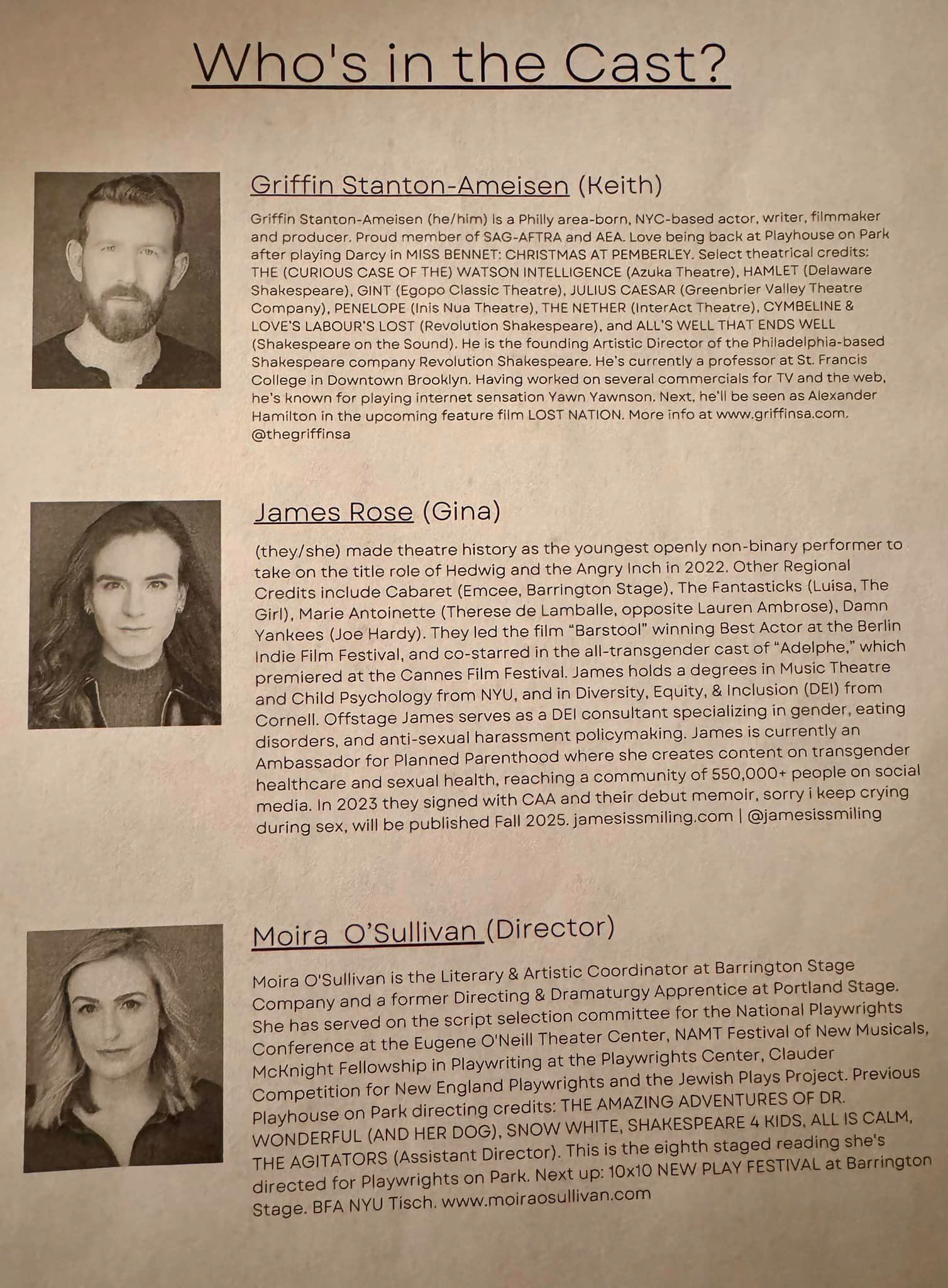FULL LENGTH PLAY
Dramedy
Dramedy
Two people unite against a crisis and divide on how to break through, revealing that sometimes fantasy is the perfect reality for impossible futures.
Gina, a transgender woman, and Keith, a cisgender man, navigate the joys and complexities of life over the course of their relationship. As emerging technologies offer a chance to connect with those who’ve passed away, both must decide what being alive actually means.
Impossible Theories Of Us is a play full of complicated hope, unfolding spirituality, and the dynamic ways one couple navigates mortality. Exploring both the possibilities and responsibilities of artificial intelligence, it challenges our expectations of what truly makes us human.
Gina, a transgender woman, and Keith, a cisgender man, navigate the joys and complexities of life over the course of their relationship. As emerging technologies offer a chance to connect with those who’ve passed away, both must decide what being alive actually means.
Impossible Theories Of Us is a play full of complicated hope, unfolding spirituality, and the dynamic ways one couple navigates mortality. Exploring both the possibilities and responsibilities of artificial intelligence, it challenges our expectations of what truly makes us human.
CHARACTER INFORMATION
Gina - Trans Woman, 30s/40s
Keith - Cis Man, 30s/40s
THEMES
trans joy, marriage, hope, artificial intelligence
AWARDS & RECOGNITION
FINALIST
National Queer Theater, NYC - 2024
FINALIST
Bay Street Theater, NYC - 2024
SEMIFINALIST
American Stage Theatre Company, FL - 2024
OFFICIAL SELECTION - STORIES OF DIVERSITY
The Fulton Theatre, PA - 2023
SEMIFINALIST
The Del Shores Foundation Writers Search, CA - 2023
SEMIFINALIST
The Morgan-Wixson Theatre, CA - 2023
REVIEWS & RECOMMENDATIONS
“A brilliant play about loss and the ethics of AI technology. This play has a fantastic role for a trans woman.”
(Shaun Leisher)
“There's a charming Black Mirror aesthetic to IMPOSSIBLE THEORIES OF US by John Mabey, but Mabey goes deeper than that in their IMPOSSIBLE THEORIES. While a Black Mirror episode might leave the reader with a bleak overall feeling of "technology is bad", Mabey explores the ethics of AI as well as love, grief, and trans identity in a meaty, highly stylized full-length piece for two actors with an inventive narrative structure. A miracle? A tragedy? A rom-com? It's all of these things. Sounds impossible, but I have a theory John Mabey has pulled through for us.”
(Peter Fenton)
“A lovely meditation on the joy of authentic connection and the question of what makes us human. From their earliest, fresh and funny meet-cute connection through the grappling with what memory means to their final incorporeal reunion, Gina and Keith are constantly engaging and constantly pulling us into their struggle with the very nature of reality.”
(Paul Donnelly)
“A beautiful, beautiful play about loss, memory, grief, identity, relationships, technology, and the very essence of humanity--some weighty stuff! I appreciated how huge existential themes were explored through this charming, intimate, deftly-rendered relationship. I also so appreciated how Gina existed as a trans character and her world and life were so clearly shaped and influenced by various bits of her identity, but we saw her journey in an extremely intersectional manner. How her gender was discussed with Keith as he and Gina contemplated his fate and impending transformation in the "past tense" scenes was nuanced and lovely.”
(Nick Malakhow)
(Shaun Leisher)
“There's a charming Black Mirror aesthetic to IMPOSSIBLE THEORIES OF US by John Mabey, but Mabey goes deeper than that in their IMPOSSIBLE THEORIES. While a Black Mirror episode might leave the reader with a bleak overall feeling of "technology is bad", Mabey explores the ethics of AI as well as love, grief, and trans identity in a meaty, highly stylized full-length piece for two actors with an inventive narrative structure. A miracle? A tragedy? A rom-com? It's all of these things. Sounds impossible, but I have a theory John Mabey has pulled through for us.”
(Peter Fenton)
“A lovely meditation on the joy of authentic connection and the question of what makes us human. From their earliest, fresh and funny meet-cute connection through the grappling with what memory means to their final incorporeal reunion, Gina and Keith are constantly engaging and constantly pulling us into their struggle with the very nature of reality.”
(Paul Donnelly)
“A beautiful, beautiful play about loss, memory, grief, identity, relationships, technology, and the very essence of humanity--some weighty stuff! I appreciated how huge existential themes were explored through this charming, intimate, deftly-rendered relationship. I also so appreciated how Gina existed as a trans character and her world and life were so clearly shaped and influenced by various bits of her identity, but we saw her journey in an extremely intersectional manner. How her gender was discussed with Keith as he and Gina contemplated his fate and impending transformation in the "past tense" scenes was nuanced and lovely.”
(Nick Malakhow)
“Stunning. As brilliant as the light display that envelops the entire piece. John Mabey gives us two characters who instantly charm us and takes us on a journey through their life together and beyond. Whether through science or a miracle, or the miracle of science, the prospect of immortality raises fascinating questions about AI, humanity, memories, and more. There’s a reason this play is gaining so much recognition. Read it and you’ll understand.”
(Morey Norkin)
(Morey Norkin)
“I don't often gravitate towards sci-fi, but this play is a stunning exception. This is an achingly human, beautiful work that had me fully engaged the entire time. The relationship between Gina and Keith is tender, honest, and believable in a way that it takes incredible skill to capture. "Impossible Theories of Us" is sheer brilliance start to end; it deserves a full production, and soon.”
(Jack Seamus Conley)
(Jack Seamus Conley)
“A gorgeously written character-driven sci-fi where the two leads have undeniable chemistry and not a beat is wasted. The final image in this play took my breath away.”
(Baylee Shlichtman)
(Baylee Shlichtman)
“IMPOSSIBLE THEORIES OF US is a tender, timeless journey through love, longing, and loss that incorporates imagined (future) technologies resulting in an exquisite science fiction romance. Mabey’s talent for crafting three-dimensional characters through their choices works in tandem with his fine ear for truthfully layered dialogue to create an utterly human story that’s stunning in its simplicity. Theaters will be lucky to produce this knock-out of a play!”
(Sarah Tuft)
(Sarah Tuft)
“ITOU is the best kind of sci-fi, where abstract concepts—faith, identity, the afterlife—are made literal and urgent by speculative circumstances (in this case, advanced AI technology which can recreate consciousness from recorded memories).
ITOU reminds me a bit of my favorite episode of Black
Mirror, and a bit of John Mighton’s quantum physics romance, POSSIBLE WORLDS—but this play is uniquely John Mabey. Gina’s transness is an essential element of her character and the play. It’s not her trauma, but her superpower, allowing her to imagine a self that shifts and expands and contains multitudes. ”
(Jillian Blevins)
ITOU reminds me a bit of my favorite episode of Black
Mirror, and a bit of John Mighton’s quantum physics romance, POSSIBLE WORLDS—but this play is uniquely John Mabey. Gina’s transness is an essential element of her character and the play. It’s not her trauma, but her superpower, allowing her to imagine a self that shifts and expands and contains multitudes. ”
(Jillian Blevins)
“The first John Mabey play I ever read was "True Skies," and it blew me away. It was so incredible to discover the rest of that touching and memorable story - and who could have guessed that it would be a science fiction epic about what it means to be human? Truly, reflecting the best of humanity on the stage seems to be Mabey's gift. This play is, at turns, harrowing and hopeful, but always about people, warts and all. The mastery of dialogic rhythm brings it to the next level.
Genre theatre at its best! ”
(Aly Kantor)
Genre theatre at its best! ”
(Aly Kantor)
“It's hard to imagine a more innovative way to tell a story than the one Mr. Mabey has created. The humanity of the characters is special, with the play's characters speaking in simple, heartfelt ways. You can feel the longings, the sadness, the joys, the questioning...the play just floats. A wonderful read and it's already garnering productions and most likely, some awards. Well done!”
(Bruce Karp)
(Bruce Karp)
“Magic. A tiny miracle that grows and grows. That is the relationship we are allowed to bear witness to between Gina and Keith. This is a gift. Humans cling so hard to memory and each other, sometimes holding too tightly is how we lose what we had. But Gina clinging to Keith, both real and hologram, is actually evidence that they will always find each other again. Like energy seeking like energy. This is the most human science fiction you may ever experience.”
(Jacquelyn Floyd-Priskorn)
(Jacquelyn Floyd-Priskorn)
“Oh my gosh, this beautiful play! It's about love and loss and change and denial and acceptance and so much more, and it feels like poetry. I love the layers to the dialogue and how the play is simultaneously a small play about one singular relationship, and also a giant play about enormous topics like ethics in science, grief, and faith. Impossible Theories of Us deserves all the praise it has already gotten and more!”
(Lisa Dellagiarino Feriend)
“Because the mind cannot truly comprehend the idea of its own mortality, we create images, ideas, realms, worlds -- or afterworlds -- of what happens when one life ends. Does another begin? Can it be captured some way? And what happens to those we love and leave behind... do they still stay with us and us with them? John Mabey's play doesn't answer these profound questions, but the possibilities... oh, so many. The journeys of Gina and Keith are told in simple conversations that are deeply affecting and binding, and we become closer to the impossible theories and each other.”
(Philip Middleton Williams)
(Lisa Dellagiarino Feriend)
“Because the mind cannot truly comprehend the idea of its own mortality, we create images, ideas, realms, worlds -- or afterworlds -- of what happens when one life ends. Does another begin? Can it be captured some way? And what happens to those we love and leave behind... do they still stay with us and us with them? John Mabey's play doesn't answer these profound questions, but the possibilities... oh, so many. The journeys of Gina and Keith are told in simple conversations that are deeply affecting and binding, and we become closer to the impossible theories and each other.”
(Philip Middleton Williams)
“The moral questions raised in this play are really important, and the play itself is filled with moments of tenderness, love and hope. I am moved by the relationship at its center and enjoy how Mabey keeps us guessing as to where the play might take us, how love and loss play out over time, and how humanity might be able to learn from technology as we respond to and learn from what it could offer. Such an imaginative piece! A beautiful play.”
(Emma Goldman-Sherman)
(Emma Goldman-Sherman)
“This is a fabulously complex meditation on mortality and connection, full of wonderful language and thought-provoking ideas. Got a chance to see it at Seattle Public Theater's Distillery New Works Festival, and the audience was absolutely captivated. Highly recommend for theatres looking for a dynamic, low-resource two-hander to fill out their season.”
(Andrew Lee Creech)
(Andrew Lee Creech)
“In Impossible Theories of Us, the way that love and connection are able to transfer through technology, through death, and through transition in the play is such a powerful depiction of the human experience. And while Mabey's use of imagery provides a lot of opportunity for very cool technical elements, the tenderness of the piece is what makes it so striking. This is an excellent option for theatres looking to produce a two person play with minimal set that packs a real punch!”
(H. Avery)
(H. Avery)
“Amazing to find so much humanity in a play with A.I. ostensibly at its core. The ongoing conversation between Gina and Keith in their multiple forms (another theme of the play that is so well explored) is exciting, touching, engrossing - sometimes all at once. There are times where a brief statement made by one or the other was enough to pause my breath. This play raises so many questions in you, and it's just delightful to abide in its exploration. I can't wait to see this staged!”
(Brent Alles)
(Brent Alles)
“I was fortunate enough to see a staged reading of "Impossible Theories of Us" at Playhouse on Park in West Hartford. I was captivated from the first line of dialogue. John Mabey's witty dialogue drew me in quickly, as did the gentleness and complexity of the questions being explored. I was thoroughly engaged and left the reading craving to see a full production.”
(Laura Thoma)
(Laura Thoma)
“What a beautiful poem of a play! The dialogue is a playful, tender dance that glides up on the sand, washes back into the ocean, and then returns again later. Mabey parcels out exposition so lightly that I felt as if I were eavesdropping. The reader receives just enough information to build a complete history of Gina and Keith’s marriage. We are also allowed to grapple with a technology that
likely already exists. Haunting and heartfelt.”
(Peter Turner)
likely already exists. Haunting and heartfelt.”
(Peter Turner)
READINGS & WORKSHOPS
The Fulton Theatre, PA - 2023
The Neurodivergent New Play Series, NYC - 2023
Playhouse On Park, CT - 2024
Seattle Public Theatre, WA - 2024
The Frank Silvera Writers Workshop, CA - 2024
Play Haven, Theatrical Outfit, GA - 2026
The Neurodivergent New Play Series, NYC - 2023
Playhouse On Park, CT - 2024
Seattle Public Theatre, WA - 2024
The Frank Silvera Writers Workshop, CA - 2024
Play Haven, Theatrical Outfit, GA - 2026
IMAGES

Seattle Public Theater

Seattle Public Theater
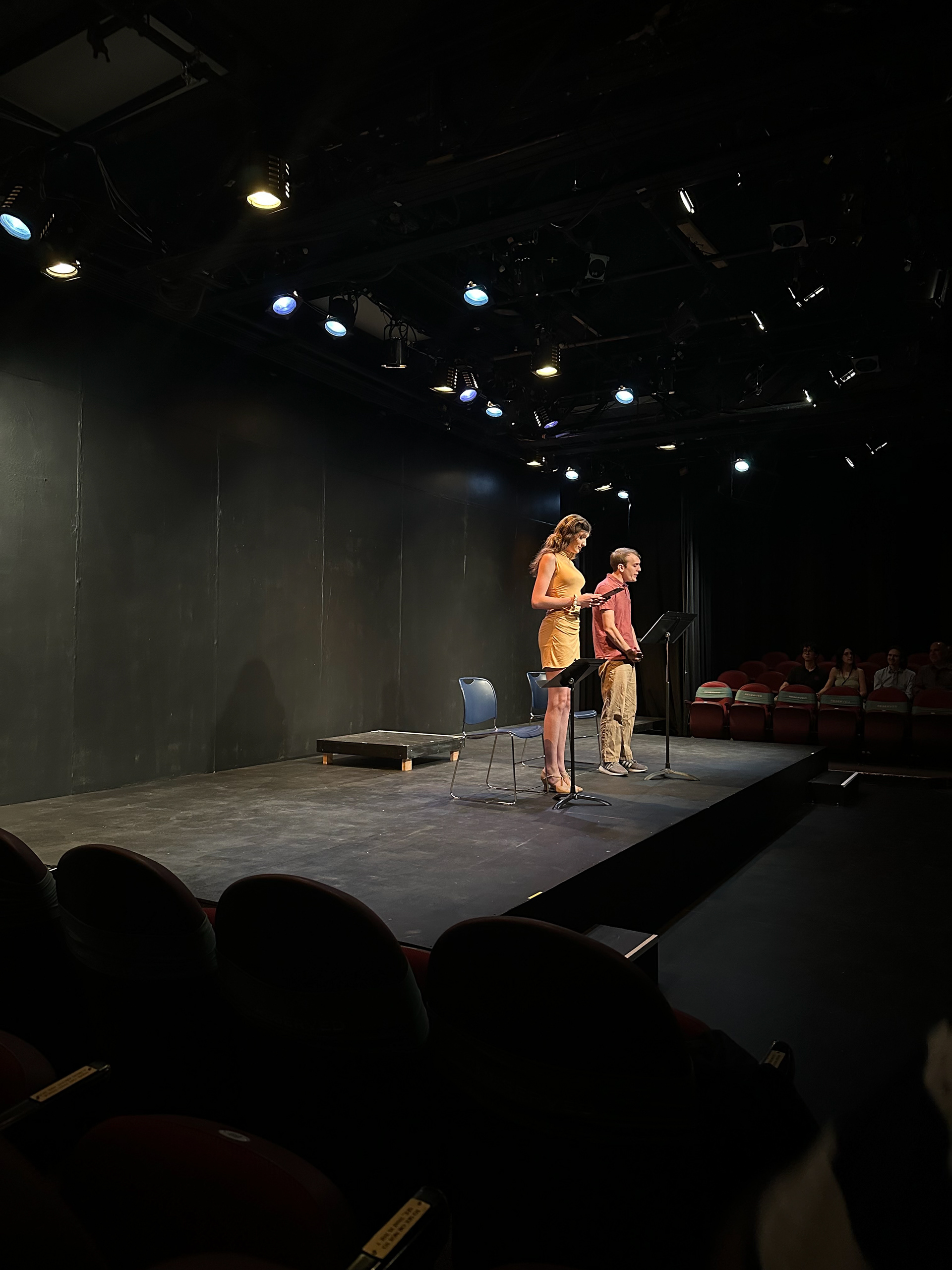
Seattle Public Theater
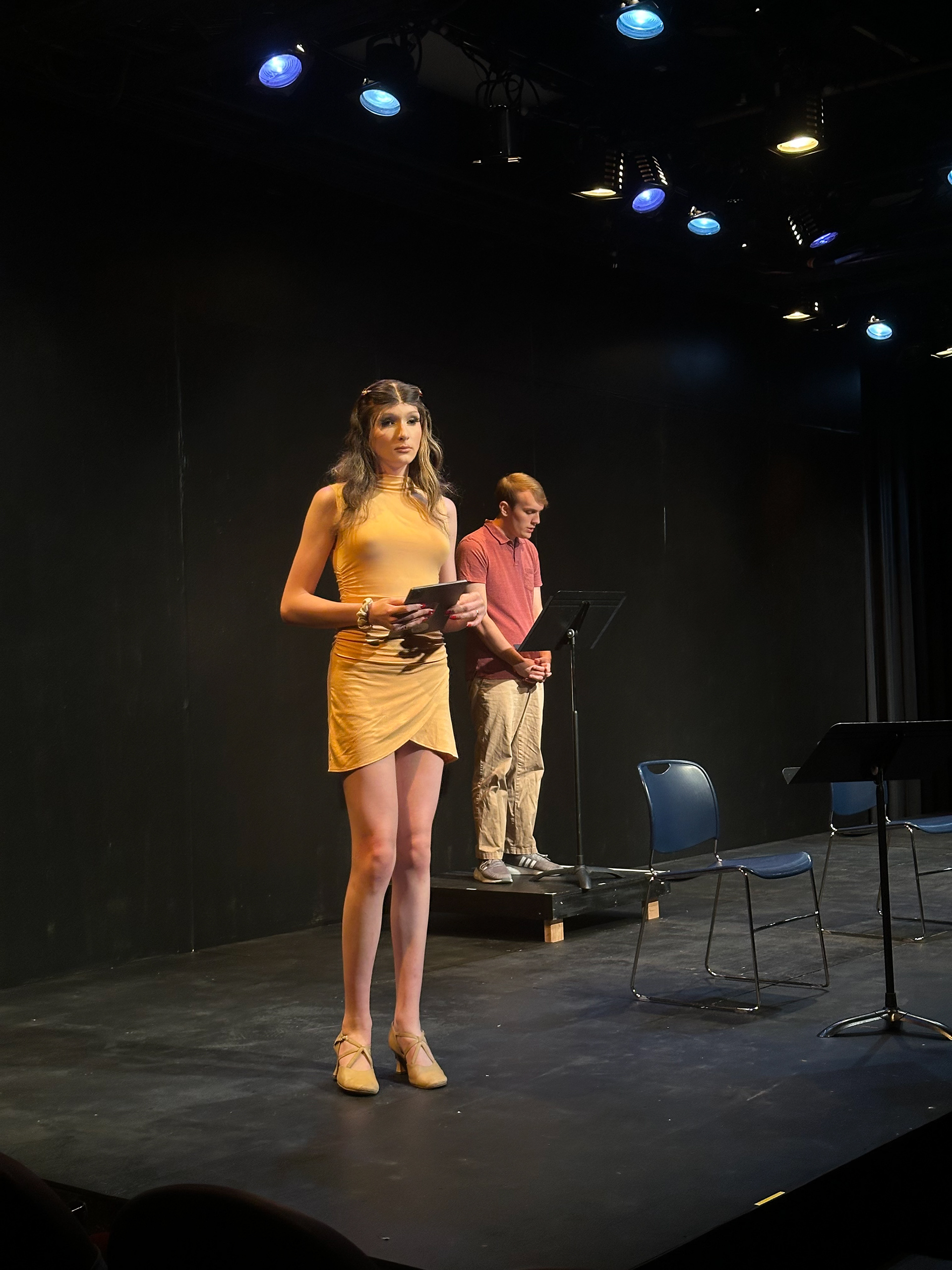
Seattle Public Theater
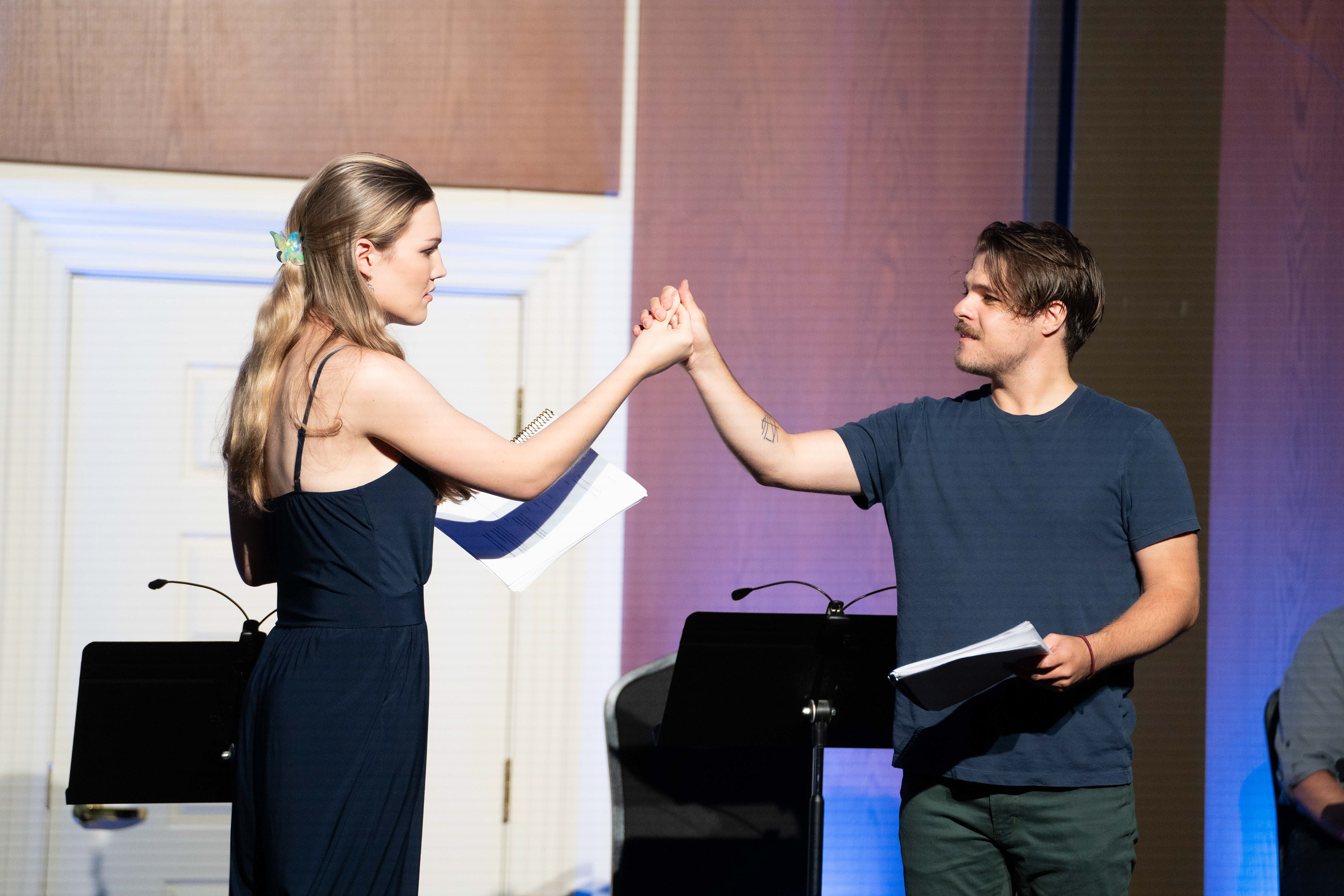
The Fulton Theatre - images by Kevin Faraci
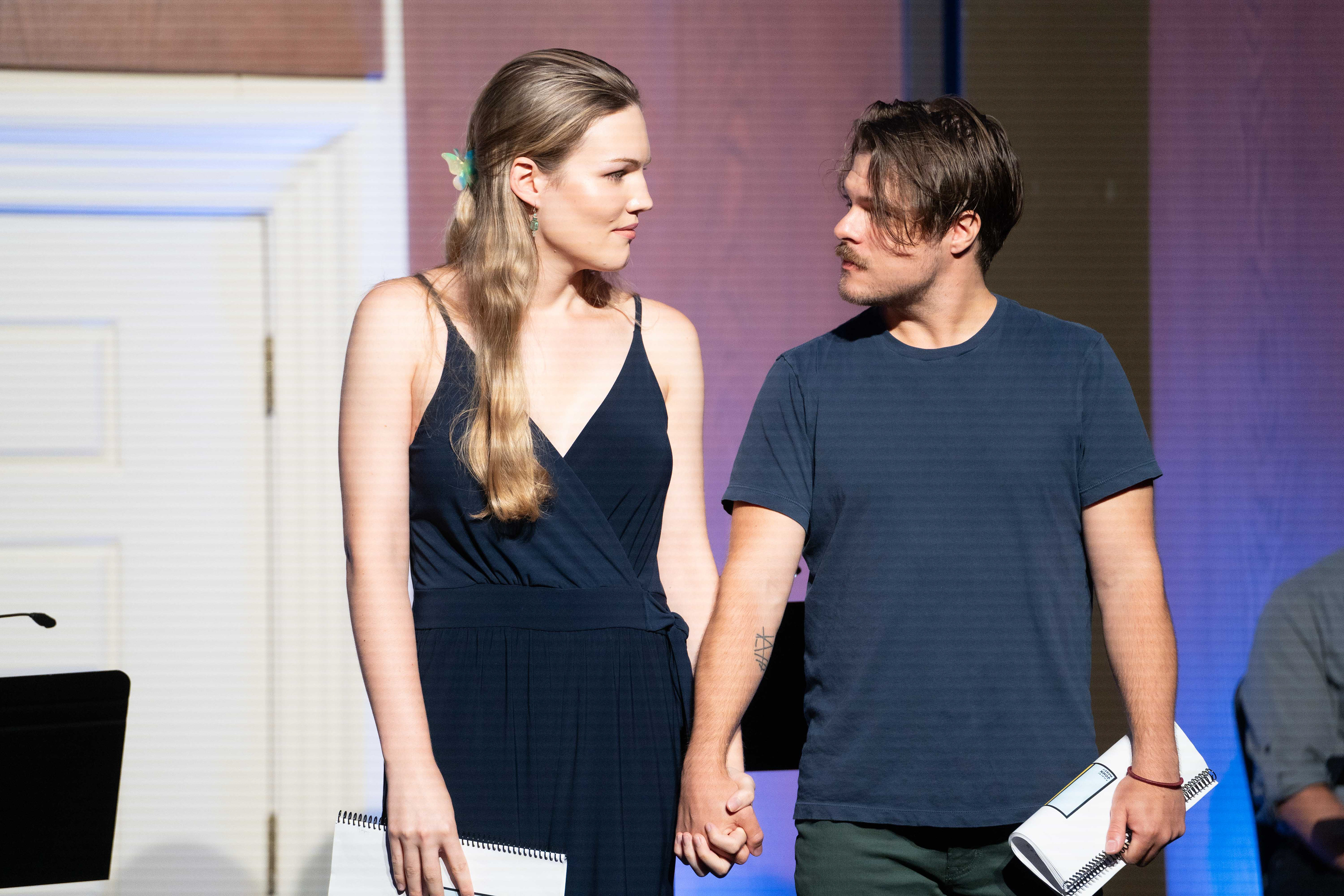
The Fulton Theatre - images by Kevin Faraci
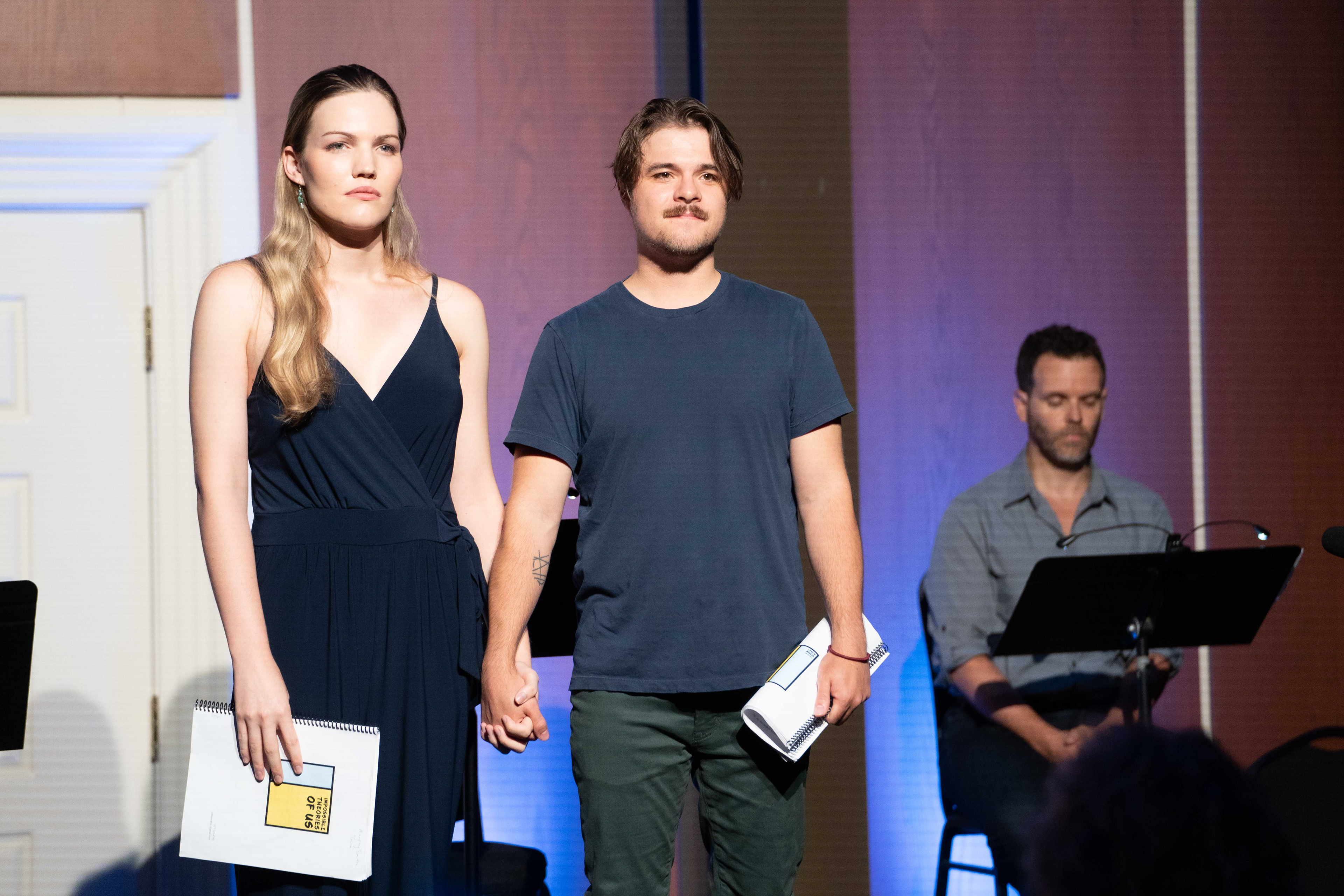
The Fulton Theatre - images by Kevin Faraci
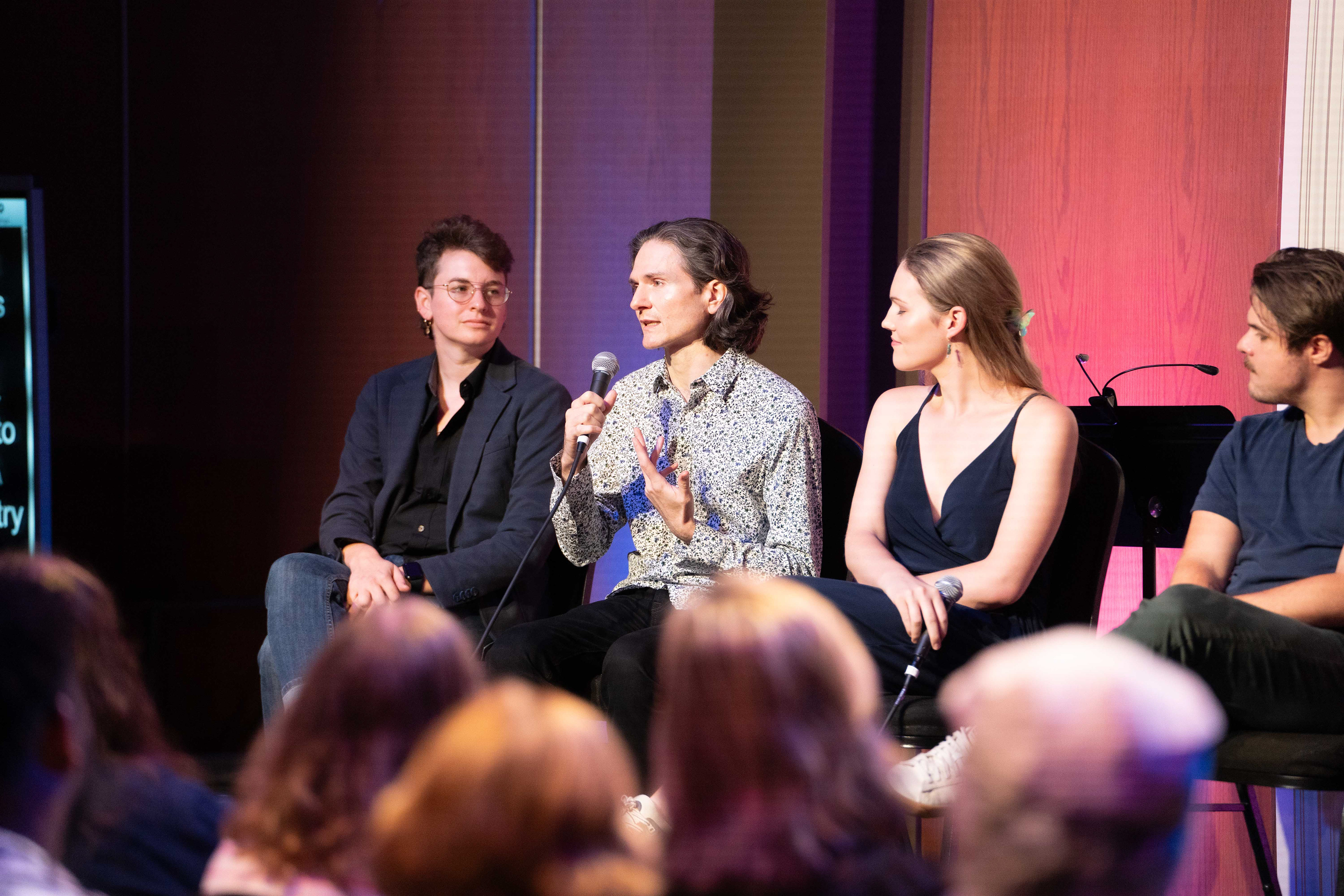
The Fulton Theatre - images by Kevin Faraci
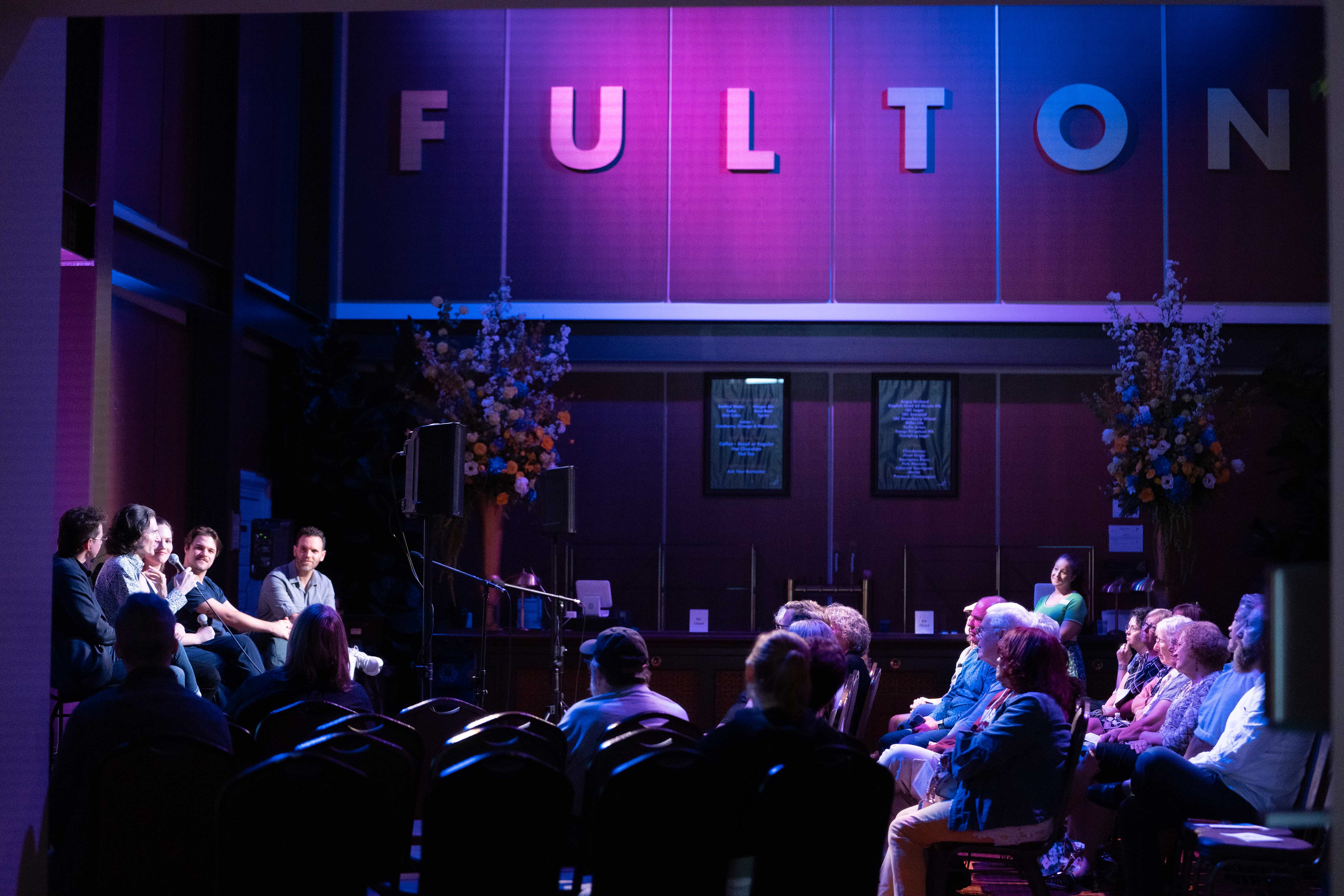
The Fulton Theatre - images by Kevin Faraci
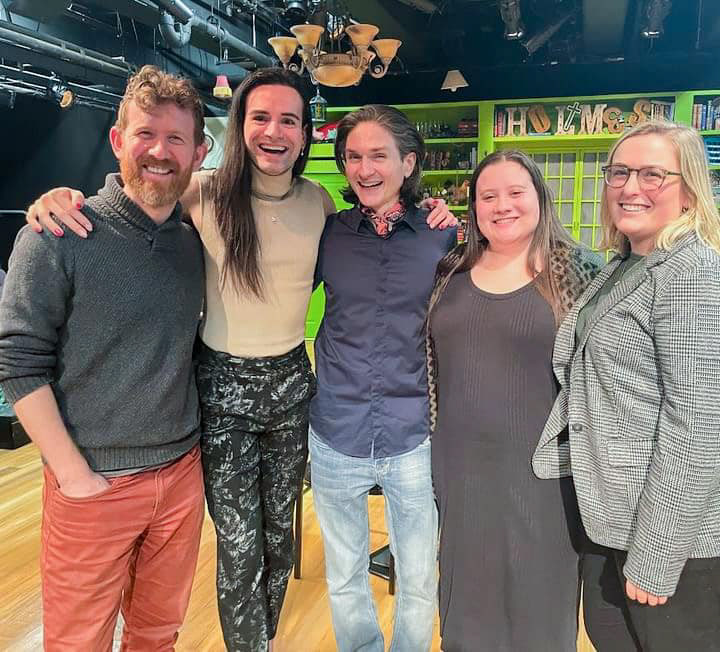
Playhouse On Park, CT
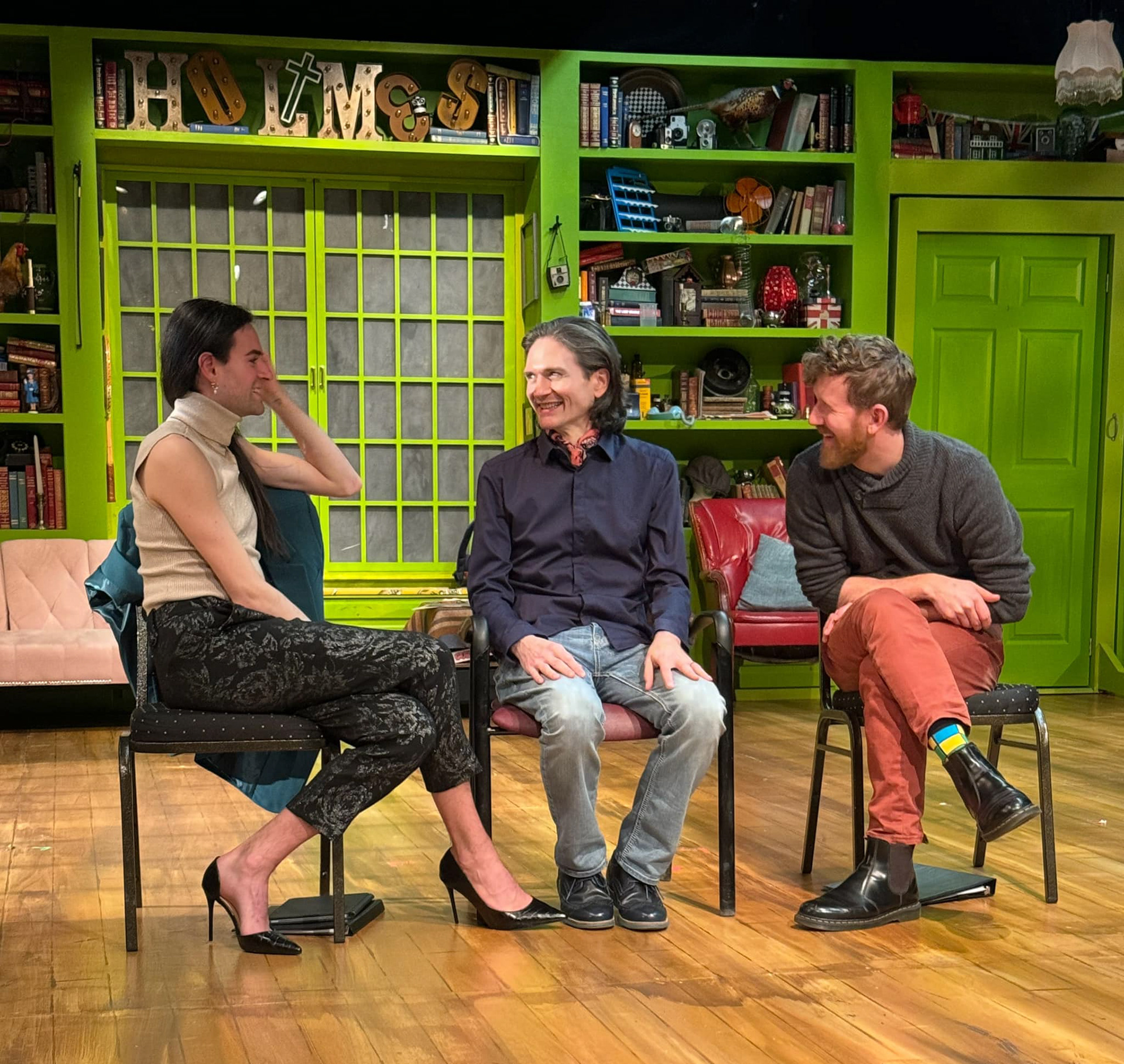
Playhouse On Park, CT
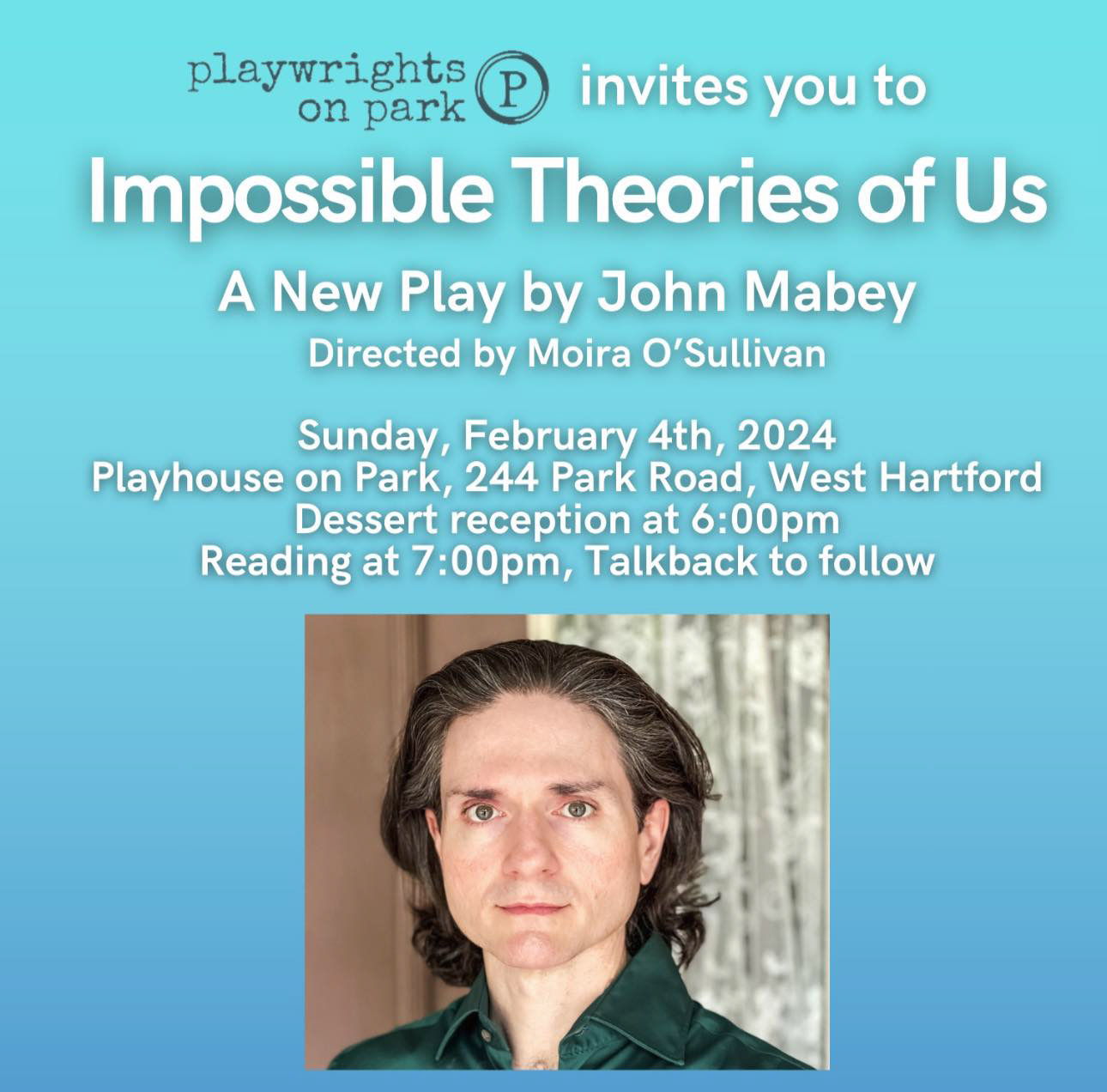
Playhouse On Park, CT
